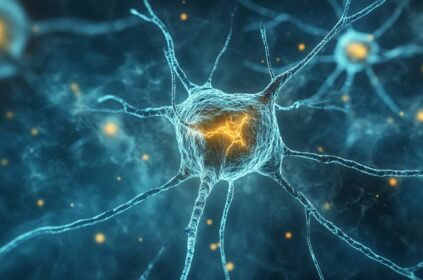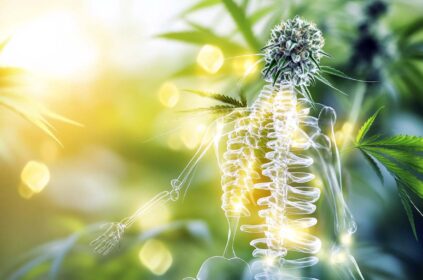Delta-9 THC’s Effects on ADHD Symptoms: A Comprehensive Guide
Introduction
Attention Deficit Hyperactivity Disorder (ADHD) can feel like a whirlwind. The constant struggle with inattention, hyperactivity, and impulsivity makes daily life and activities a challenge for both those affected and their loved ones. For many, finding an effective treatment is a journey, often filled with trial and error. As traditional treatments like stimulants have been available for years, some individuals are turning to cannabis, particularly Delta-9 THC, seeking relief from their symptoms. This guide seeks to unravel the effects of Delta-9 THC on ADHD symptoms, illuminating both potential benefits and risks of using this compound.
Understanding Delta-9 THC
Delta-9 THC (Δ9-tetrahydrocannabinol) stands at the forefront of cannabis’s psychoactive elements. It’s the component that brings about the feeling of being “high,” but its impact goes beyond mere euphoria. By interacting with the endocannabinoid system (ECS) in our bodies—particularly the CB1 and CB2 cannabinoid receptors—Delta-9 THC influences a variety of physiological functions. Many believe this connection might extend to helping manage symptoms of ADHD.
Potential Benefits of Delta-9 THC for ADHD
While the research is still emerging, several studies and anecdotal reports provide noteworthy insights into how Delta-9 THC may support individuals with ADHD. Here’s a closer look at some of the potential benefits:
Reduction in Hyperactivity
Attending to the whirlwind nature of ADHD, reducing hyperactivity can feel like taming a storm. Clinical case reports suggest that individuals using Delta-9 THC may experience decreased hyperactivity. For instance, one German study involved a patient who reported a noticeable decrease in hyperactivity after using a cannabis strain rich in Delta-9 THC. This aligns with anecdotal evidence from many users who report feeling calmer and less on edge than without it.
Decreased Impulsivity
Impulsivity is a hallmark of ADHD, often leading to hasty decisions or outbursts. Delta-9 THC may help to manage this impulsivity. By engaging with CB1 receptors, Delta-9 THC might play a role in modulating the dopaminergic pathways in the brain. This could improve impulse control and reduce episodes of frustration, making it easier for individuals to navigate their daily lives.
Anxiety Relief and Improved Sleep
When the mind races, achieving a restful night’s sleep can feel nearly impossible—and sleep is crucial for overall well-being. Many ADHD sufferers have found that Delta-9 THC assists in alleviating anxiety, allowing for smoother transitions into sleep. The sedative qualities inherent in the compound can help individuals fall into a deeper, more restful slumber, crucial for maintaining energy and focus throughout the next day.
Focus and Cognitive Function
While the research on Delta-9 THC’s direct impact on focus in the context of ADHD remains limited, user experiences suggest potential benefits. Some report enhanced concentration when using Delta-9 THC; yet, it’s essential to note that it may induce sedation in some users, which could be counterproductive for those who need to remain alert.
Risks and Considerations
As with any treatment, it’s vital to balance potential benefits against risks. Delta-9 THC is no exception, and several important considerations need to be addressed:
Interaction with ADHD Medications
Combining Delta-9 THC with conventional ADHD medications isn’t a decision to be taken lightly. Reports indicate that THC might interact with stimulant medications like methylphenidate (Ritalin, Concerta), potentially dampening their efficacy or enhancing side effects. Being aware of these interactions is crucial for anyone considering this path.
Risk of Cannabis Use Disorder
While cannabis has medicinal benefits, there’s also an acknowledged risk of developing cannabis use disorder (CUD), especially among individuals with ADHD, who may already be more vulnerable. The high THC concentrations in modern cannabis strains can enhance this risk, potentially leading to dependency or negative impacts on one’s health and lifestyle.
Adverse Effects on Brain Development
Research indicates that cannabis use during critical periods of brain development, particularly for adolescents with ADHD, can result in lasting effects. The developing frontal lobes in those with ADHD may struggle more with the negative impacts of THC, potentially leading to irreversible changes in neuronal connections.
Real-World Examples and Case Studies
Clinical Case Reports
To ground the discussion in real-world evidence, clinical case reports present a valuable perspective. For example, a case in Germany documented an adult male with ADHD who experienced significant improvements when introduced to a cannabis product high in Delta-9 THC. This individual’s improvement in concentration, sleep, and impulse control paints a picture of how Delta-9 THC can effectively support some adults living with ADHD.
User Experiences
In addition to clinical insights, anecdotal reports abound. Many individuals share their journeys, noting that Delta-9 THC has provided a reprieve from the overwhelming symptoms of ADHD. Stories of improved calmness, focus, and reduced anxiety resonate strongly, although these experiences are incredibly varied. One user might feel less anxious and more centered, while another may find that THC exacerbates their sensitivity or creates unwanted side effects.
Conclusion and Actionable Tips
In summation, while Delta-9 THC shows promise in alleviating some ADHD symptoms, it’s essential to approach its use thoughtfully and with guidance. Here’s a recap of what we’ve uncovered:
- Potential Benefits: Delta-9 THC may provide relief by reducing hyperactivity, impulsivity, and anxiety, while improving sleep quality for some individuals.
- Risks: Consider potential interactions with ADHD medications, the risk of cannabis use disorder, and potential negative impact on brain development.
- Individual Variability: Responses to Delta-9 THC can vary significantly, emphasizing the importance of personal exploration in treatment.
Actionable Tips
If you’re considering Delta-9 THC for ADHD management, here are some key tips:
- Consult a Healthcare Provider: Before venturing into Delta-9 THC or any cannabis product, discuss it with a healthcare professional familiar with your situation. This empowers you with individual insights on potential benefits and risks.
- Monitor Interactions: Be vigilant about possible interactions between Delta-9 THC and your ADHD medications, ensuring that you understand their effects comprehensively.
- Start with Low Doses: If you decide to experiment, begin with a low dose. This allows you to gauge its effects on your body without overwhelming your system.
- Consider Alternative Cannabinoids: If Delta-9 THC feels too intense, consider alternatives like Delta-8 THC, which may provide similar benefits with a gentler touch.
As research continues to unfold, the path of navigating ADHD alongside cannabis remains intriguing and complex. By approaching this journey with careful consideration, we can enhance our understanding of how Delta-9 THC and its counterparts may contribute to managing ADHD symptoms, fostering a broader conversation about holistic treatment options.
For the latest insights and tips on hemp and CBD, visit our blog or explore our resources at mycbdadvisor.com.




















